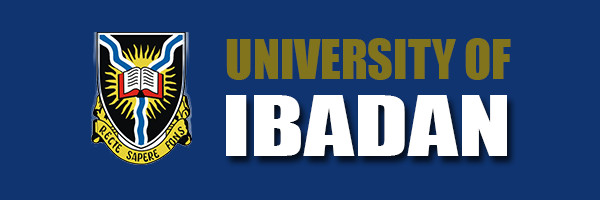UI-DRUSSA research uptake article
|
Public Engagement: Sustainable Integrated Pond Based Aquaculture in Nigeria |
|
Outreach activities linked to a research project at the University of Ibadan in Nigeria keep it real by using a range of communication methods to both involve resource-poor farmers, and to create awareness of this innovative food-security project so as to enhance Research Uptake. Integration and upscaling for food security The major aim of this three-year regional project, which began in 2014 and runs to 2016, is to test, demonstrate and train farmers in techniques that improve integrated crop-aquaculture-livestock production systems in Nigeria and subsequent up-scaling and out-scaling to other countries of the West and Central Africa sub-region by 2016. The project focuses on the development of viable and sustainable integrated aquaculture systems to supplement agricultural production (rice and poultry) for resource-poor farmers. It specifically aims to address the challenges related to decreasing fishing catches and the reduction in rice and poultry production in West and Central Africa. It covers three West and Central African countries (Nigeria, Cameroon and Sierra Leone). The main beneficiaries are 600 integrated rice-aquaculture-livestock farmers, of which 30% are women and youth. "the farmers and all other actors in the value chain were carried along right from the stage of conceptualization and this ensured that real and not apparent areas of need were researched" Research Uptake and capacity building The project has established farmer demonstration plots in selected villages, and two demonstration plots were established per country. Over 250 farmers have been trained so far in Nigeria, exceeding the original target of 100 farmers reflected in the research protocol. 100 farmers each have so far been trained in Cameroun and Sierra Leone. Fish farming associations in the three countries have shown an interest in the project and 60% of the trained farmers have indicated an interest in the adoption of the technologies developed. The capacity of undergraduate and postgraduate students has also been enhanced through the use of adaptive research facilities for research and training. Over 500 hundred students have been trained through this process, of which 200 are females. The capacity of departments in charge of Aquaculture and Fisheries Management in the collaborating Universities in these countries has also been further enhanced through roll-out of the research and training and the provision of laboratory equipment.
Demonstrating Fish Processing Methods Part of the success of the research is a result of the development of cheaper floating pellet feed and this is expected to bring about an 80% reduction in the cost of catfish feed. The research has also successfully achieved its target of 100% waste utilizations through maggot production, fish oil and fish meal production and production of mineral-rich manure. "The project has created linkages and means of interaction among farmers’ groups, government institution and agro allied services’ agencies through the creation of innovation platform using the principle of IAR4D" Research Uptake tools: IAR4D In order to achieve its objective of improving Sustainable Integrated Aquaculture Systems, significant time has been spent raising awareness amongst not only farmers, but also other stakeholders such as farmers’ associations, government institutions and agro-allied services’ agencies. This has been achieved through the production of training manuals, media reviews and CD publications of the project activities. In fact in addition to raising awareness the project has been able to create linkages and means of interaction among farmers’ groups, government institutions and agro allied-services’ agencies through the creation of an innovation platform using the principle of Integrated Agricultural Research for Development (IAR4D). This approach involved the formation of a multi-stakeholder innovation platform that included actors in production, marketing, research, advisory services, policy, and funding agencies to discuss and integrate ideas on what was to be researched. This is a radical departure from the conventional practice of research and transfer to the farmers. In this case the farmers and all other actors in the value chain were carried along right from the stage of conceptualization and this ensured that real and not apparent areas of need were researched. The benefits of this are increase relevance of research output to specific areas of need and the greater ease of adaptation of the research output. The lead researchers are Prof. Emmanuel Kolawole Ajani (Nigeria), Dr Pius Oben (Cameroun) and Dr Julius Olapade (Sierra Leone)
Farmers at a Demonstration Site References Omitoyin B.O., Ajani E.K. and Nwanna L.C. ed. (2013): Training Manual for Fish Farmers under integrated fish cum poultry and rice culture. 123pp. Walecrown Ventures Ibadan Ajani, E. K., Omitoyin, B.O., Akinwole A.O., Fregene, B. T., Adeshinwa A. O. K., Kazeem, K. O., Osho. E. F. and Olojo, B.O.(2014) : Biological Factors And Performance Indicators Under Integration Of Fish, Poultry And Rice Production. Proceeding of theHumbolt Kellog Conference, Federal University of Technology Akure,Ondo state, Nigeria. Sept 29- Oct., 1, 2014. Pp 13 Fregene, B. T., Ajani, E. K., Omitoyin, B.O., Akinwole A.O., Adeshinwa A. O. K., Kazeem, K. O., Osho. E. F. and Onoda, O. A. (2014): Production indices and profitabilty analysis of integrated fish farming (fish, rice, poultry and pig production). Proceeding of theHumbolt Kellog Conference, Federal University of Technology Akure,Ondo state, Nigeria. Sept 29- Oct., 1, 2014. Pp 47 Ayanwale, A.B., Luke O. O., Olufemi A.O., Kaku S. N., Adewale A. A.and Oluwole F. 2013. Enhancing Smallholder Farmers Income and Food Security through Agricultural Research and development in West Africa: Impact of the IAR4D in the KKM PLS. Invited paper presented at the 4thInternational Conference of the African Association of Agricultural Economists, September 22-25, 2013, Hammamet, Tunisi For more information on IAR4D there is an interesting presentation by Dr Sidi Sanyang (2012) Integrated Agricultural Research for Development IAR4D Innovation Systems Innovation Platform (IP) processes along value chains available here |
“First published at www.drussa.net/drussa.mobi under the CC BY NC SA 3.0 licence.“


